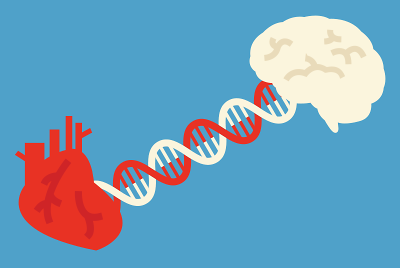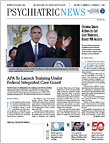A study published December 4 in Science suggests that neurodevelopmental abnormalities in children with congenital heart disease may arise from the acquisition of harmful de novo gene mutations. These are not inherited but rather spontaneously occur during fetal development. These abnormalities include cognitive, motor, social, and language impairments.
“Finding this strong association between the developing heart and brain was a bit surprising, for while the heart and brain are both complex organs, they do separate early in the development process,” said study coauthor Jonathan Kaltman, M.D., who is the administrator of the National Heart, Lung, and Blood Institute’s (NHLBI) Bench to Bassinet Program, which funded this study.
“At the same time, it makes sense clinically, given that there are several inherited disorders such as Down’s syndrome or DiGeorge syndrome, which feature both cardiac and neurological problems.”
Investigators from the NHLBI’s Pediatric Cardiac Genomics Consortium used a technique known as exome sequencing to scan all the protein-encoding regions of the genome in over 1,200 affected family trios (a child with congenital heart disease [CHD] and his or her parents) along with 900 control trios without CHD.
They uncovered almost 400 potentially harmful de novo mutations that significantly contribute to the risk of co-occurring CHD and neurodevelopmental disorders.
While an excess number of these harmful mutations were found in only 2 percent of patients who had isolated CHD, the prevalence rose in children with more complications. The mutations were present in about 10 percent of patients who also had neurodevelopmental disorders or other extracardiac congenital anomalies (such as limb or kidney defects), and 20 percent of patients who had both.
When the researchers compared the genetic data from children with CHD and children with neurodevelopmental disorders but no heart problems, they found 85 mutations were present in both groups—more than twice as many as would be expected by random chance.
“These findings show enough statistical risk of developing neurodevelopmental disabilities when these particular gene mutations are present that we might consider developing a genetic test for patients with CHD,” Kaltman told Psychiatric News. Such a test could help to identify high-risk children for early interventions that might help to limit developmental delays and improve functioning, he said.
In addition to the NHLBI, this study was supported in part by the National Human Genome Research Institute, the Howard Hughes Medical Institute, and Simons Foundation for Autism Research. ■
An abstract of “De Novo Mutations in Congenital Heart Disease With Neurodevelopmental and Other Congenital Anomalies” can be accessed
here.

